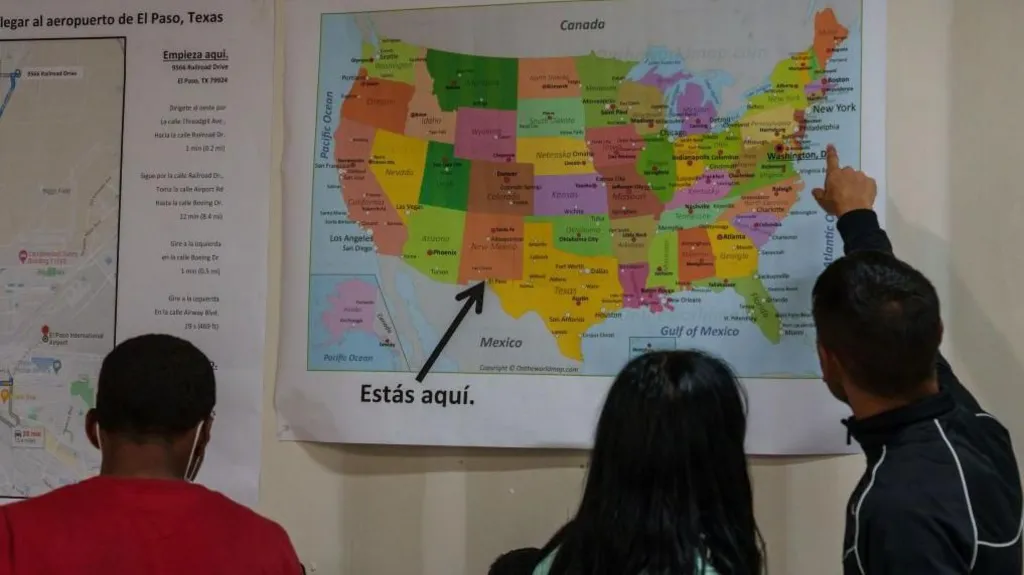US President Donald Trump’s administration has announced plans to revoke the temporary legal status of more than 530,000 migrants from Cuba, Haiti, Nicaragua, and Venezuela, effectively ending a Biden-era sponsorship program known as CHNV.
These migrants have been instructed to leave the country before their permits and deportation protections are officially terminated on April 24, according to a notice issued by the federal government. The CHNV program, launched by President Joe Biden in 2022, was designed to create legal pathways for migrants fleeing humanitarian crises in their home countries, allowing them and their immediate family members to enter the US and remain under a temporary immigration status known as “parole” for up to two years.
Trump’s Immigration Crackdown
President Trump, who took office earlier this year, quickly moved to suspend the CHNV program, claiming it had failed in its objectives. The Department of Homeland Security (DHS) criticized the previous administration’s handling of the program, stating that it had “granted migrants opportunities to compete for American jobs and undercut American workers, forced career civil servants to promote the program even when fraud was identified, and then blamed Republicans in Congress for the chaos that ensued and the crime that followed.”
The DHS emphasized that the program had not effectively reduced illegal border crossings, as initially intended, and accused the Biden administration of mismanaging immigration policies.
Impact on Migrants and Uncertainty Ahead
It remains uncertain how many of the 530,000 affected migrants have been able to secure an alternative legal status that would allow them to remain in the US after April 24. According to federal records, the CHNV program allowed over:
✅ 213,000 Haitians to enter the US, seeking refuge amid worsening violence and instability in Haiti.
✅ 120,700 Venezuelans, who fled economic collapse and political turmoil.
✅ 110,900 Cubans and over 93,000 Nicaraguans who were granted temporary protection under the program.
The 35-page notice posted in the Federal Register clarified that some migrants under the CHNV program “might be allowed to remain on a case-by-case basis,” but no clear guidelines have been provided.
Potential Expansion of Deportation Policies
In addition to ending CHNV, Trump is reportedly considering revoking Temporary Protected Status (TPS) for approximately 240,000 Ukrainians who fled to the US during Russia’s ongoing invasion of Ukraine. TPS was granted to nationals from countries facing dangerous conditions such as armed conflicts, environmental disasters, or political crises.
The DHS had already announced plans to end TPS for 500,000 Haitians in August, a move that has drawn significant criticism from immigrant rights groups and humanitarian organizations. Furthermore, the agency’s decision to halt TPS for Venezuelans is currently facing legal challenges that could delay or potentially reverse the decision.
Legal Challenges and Political Backlash
Since returning to the White House in January, Trump’s hardline immigration policies have faced numerous legal hurdles. Advocacy groups and immigration lawyers have vowed to challenge these decisions in court, arguing that revoking the legal status of hundreds of thousands of migrants could create a humanitarian crisis and violate international human rights agreements.
Critics of Trump’s policies argue that mass deportations of individuals who have lived and worked in the US for years would not only disrupt families but also harm the US economy by removing a significant segment of the workforce.
What’s Next?
As the April 24 deadline approaches, affected migrants and their advocates are scrambling to explore legal avenues to remain in the US. Legal experts warn that the mass revocation of temporary legal status could overwhelm immigration courts and lead to chaotic enforcement efforts.
While some migrants may be eligible for asylum or other protections, the future remains uncertain for the majority of those impacted by the termination of CHNV and other programs. Trump’s administration, however, remains firm in its stance, signaling a return to stricter immigration policies that characterized his first term.




0 Comments